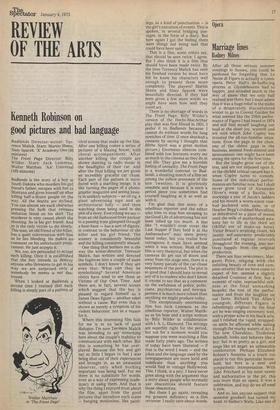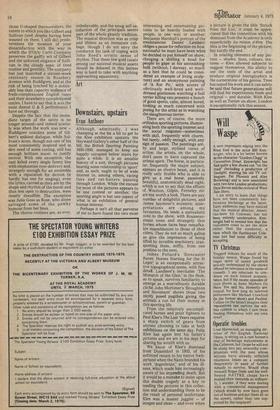(hien
Marriage lines
Rodney _Manes
After all those serious summer evenings in Sussex, you could be pardoned for forgetting that Le
Nozze di Figaro is actually a comic opera. Peter Hall's de-buffo-ing
process at Glyndebourne had to happen, and revealed much in the way of sinew that we only half realised was there, but I must admit that it was a huge relief in the midst of a desperately discontented winter to go to Covent Garden for
what seemed like the 376th performance of Figaro I had heard in 1974
and still find myself laughing out loud at the sheer joy, warmth and wit with which John Copley has invested the all-too-familiar situations. Even the page in the chair, one of the oldest gags in the business, seemed fresh-minted and spontaneous: one might have been seeing the opera for the first time.
But the laughs grow out of the text, and are not imposed upon it, as the cliched critical canard has it, when Copley turns to comedy. Some of the individual perfor mances are familiar now, but I shall never grow tired of Alexander Oliver's wasp of a Basilio, his stockings a pair of Jacob's ladders and his mouth a worm-eaten rosebud puckered with spite, or of Heather Begg's crabbed Marcellina, as dehydrated as a plate of muesli until the milk of motherhood awa kens her to life in the third act (skilful use of make-up here). Victor Braun's strutting count, his jaunty self-assurance predictably punctured at regular intervals throughout the evening, also survives happily from the original production.
There are four newcomers. Margaret Price, singing with the unfailing beauty of tone and com plete security that we have come to expect of her, seemed a slightly detached Countess at first, but a moment of calm, reproachful stillness at the final unmasking bespoke the rest of the perfor mance and froze the laughter on our faces. Richard Van Allen's youngish, different Figaro is refreshingly .original: by the final act he was singing extremely well, with a proper ache in his black aria, and I relished the vapid, strappedon smile he affected while sailing through the murky waters of Act 2.
The new Cherubino, Trudeliese Schmidt, looks and behaves like a boy, but is as pretty as a girl, and sings like an angel: an unbeatable combination. Perhaps Elizabeth Robson's Susanna is a touch too placid to run this particular household, but hers is a neat and sympathetic interpretation. With John Pritchard at his most sunny and authoritative in the pit, this
was more than an opera, it was a celebration, and boy do we all need it now.
And so, lest anyone suspect that seasonal goodwill has turned my head, to Sadler's Wells. Like one of
those U-shaped thermometers, the extent to which you like Gilbert and Sullivan (and, despite having been weaned on them. I still do) predetermines the measure of your dissatisfaction with the way in which the D'Oyly Carte Company preserves the gadfly wit of Gilbert and the unforced elegance of Sullivan in the cloudy aspic of tired routine and gentility. The company has just launched a sixteen-week centenary season in Rosebery Avenue with Ruddigore, and at the risk of being lynched by a noticeably less than capacity audience of fresh-complexioned English roses and their strawberry complexioned uncles, I have to say that it was the most dismal G & S performance I have sat through.
Despite the fact that the immediate target of the satire is no longer around—and indeed scarcely was when the work was new — Ruddigore contains some of Gilbert's spikiest dialogue, while Sullivan's score, though not one of his most consistently inspired and in, dire need of some cutting, still has enough brilliant music to justify revival. With one exception, the cast killed every single funny line with elephantine over-delivery and, strangely enough for an ensemble with a reputation for diction (it hardly has one for singing), even the lyrics, carried as they are by the shape and rhythm of the music and thus less open to destruction, were mostly inaudible. The exception was Julia Goss as Rose, who alone salvaged some of the pawky humour from her lines.
The chorus routines are, as ever, unbelievable, and the smug self-satisfaction of the ,principals seems part of the whole ghastly tradition. The musical direction was as crisp and lifeless as an immature cabbage, though I do not envy the conductor his task of coping with John Reed's erratic sense of rhythm. That these few gold carats among our national musical assets should be debased in this listless way is hard to take with anything approaching equanimity.



























 Previous page
Previous page